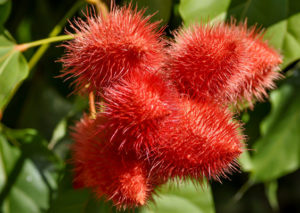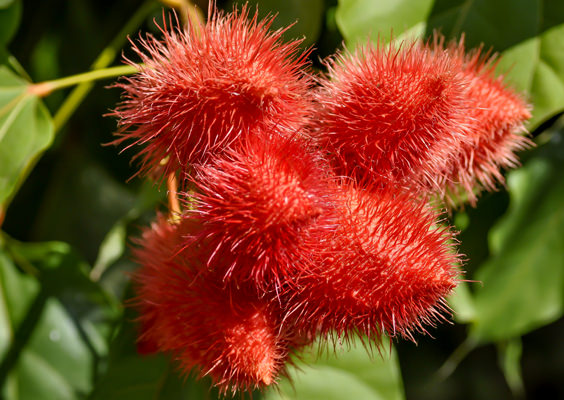
Technology is a gift, and I appreciate all the options we have today that our ancestors could not even imagine.
But there’s a price that comes with it.
Toxins from our industrial world are changing the playing field, and one of the most troubling side effects is showing up in my patients at a very young age.
You see, my patients with early-onset dementia have been getting younger and younger.
I used to see the disease start in people in their late 50s. But now I’m seeing more and more patients in their late 40s.
Now, a new study in the Surgical Neurology International journal confirms what I’ve found. Researchers discovered that people are developing dementia a decade earlier than they did just 20 years ago.1
The doctors referring their dementia patients to me aren’t sure what’s causing the change. But I am. It’s the result of our environment.
And the lead researcher of the new study, Colin Pritchard, agrees with me: “The rate of increase in such a short time suggested a silent or even a hidden epidemic, in which environmental factors must play a major part, not just aging,” he was quoted as saying.
Chronic inflammation is the culprit
Today, toxins are everywhere – in the air, in the things we handle, in the household and workplace items we us
e every day… even in our food and water.When the U.S. Centers for Disease Control and Prevention(CDC) looked at roughly 2,400 people, it found 215 toxic compounds in their urine and blood.2
All these silent irritants create inflammation as your body works to fight them off. Inflammation is an immune response that develops when the body attempts to protect itself from harmful stimuli.
Inflammation isn’t always bad. It’s the natural defense mechanism our bodies use to protect us.
But continued exposure to toxins causes chronic inflammation, which damages your immune system. And when your immune system breaks down, you become vulnerable to a host of nasty illnesses, including dementia.
Research shows a clear link between inflammation and age-related cognitive decline and risk for dementia.3
A natural remedy for dementia
A great way for you to protect yourself is a specific form of vitamin E called tocotrienols.
Tocotrienols are potent anti-inflammatory agents that have been shown to directly target inflammatory molecules.4
And they also protect the brain. Taking tocotrienol-rich supplements significantly reduces the formation of white matter lesions found in Alzheimer’s and dementia patients.5
A good way to get the benefits of tocotrientols is to add them to your diet…
- My personal favorite source is annatto oil. I first discovered annatto – the extract from the achiote tree – while on a research trip in the Andes Mountains. This substance contains more tocotrienols than any other source, roughly 15 mg per tablespoon.
- Palm oil is also a good source of tocotrienols. One tablespoon contains 8 mg.
- You can also get tocotrienols from nuts and dark leafy greens. A handful of cashews, almonds or pistachios will provide around 2 mg. And one serving of kale, broccoli or spinach has between 1 and 2 mg of tocotrienols.
Most people can’t get enough tocotrienols from their diet, so I recommend supplements…
- Make sure you get supplements that contain natural vitamin E – not its synthetic form. Vitamin E in the form of all-rac-alpha-tocopherol-acetate or dl-alpha-tocopherol should be avoided. There are serious questions about their safety and whether your body even recognizes such substances.
- I recommend supplementing with 50 mg of tocotrienols per day. Ideally, the purer the tocotrienol, the better. Some vitamin E manufacturers combine tocotrienols and tocopherols, another form of vitamin E. Tocotrienols are far better at fighting inflammation than tocopherols.6
Be sure to increase your intake of tocotrienols starting today. They’re an extremely effective and inexpensive way to shield your brain from the damage of the poisons that surround us. And unlike most prescription drugs, they come with no nasty side effects.
To Your Good Health,
![]()
Al Sears, MD, CNS
1. Colin Pritchard, Emily Rosenorn-Lanng. Neurological deaths of American adults (55-74) and the over 75′s by sex compared with 20 Western countries 1989-2010: Cause for concern. Surgical Neurology International, 2015; 6 (1): 123 DOI: 10.4103/2152-7806.16142
2. “Fourth National Report on Human Exposure to Environmental Chemicals,” U.S. CDC 2009
3. Lim A. · Krajina K. · Marsland A.L. Peripheral Inflammation and Cognitive Aging. Mod Trends Pharmacopsychiatry. Basel, Karger, 2013, vol 28, pp 175-187 (DOI:10.1159/000346362)
4. Frank J, et al. Do tocotrienols have potential as neuroprotective dietary factors? Ageing Res Rev,1995.
5. Rink C1,Christoforidis G, Khanna S, Peterson L, Patel Y, Khanna S, Abduljalil A, Irfanoglu O, Machiraju R, Bergdall VK, Sen CK.Tocotrienol vitamin E protects against preclinical canine ischemic stroke by inducing arteriogenesis. J Cereb Blood Flow Metab. 2011 Nov;31(11):2218-30. doi: 10.1038/jcbfm.2011.85. Epub 2011 Jun 15 ncbi.nlm.nih.gov/pubmed/21673716.
6. Yam ML, et al. Tocotrienols suppress proinflammatory markers and cyclooxygenase-2 expression in RAW264.7 macrophages. Lipids, 2009. 44(9):787-97.


